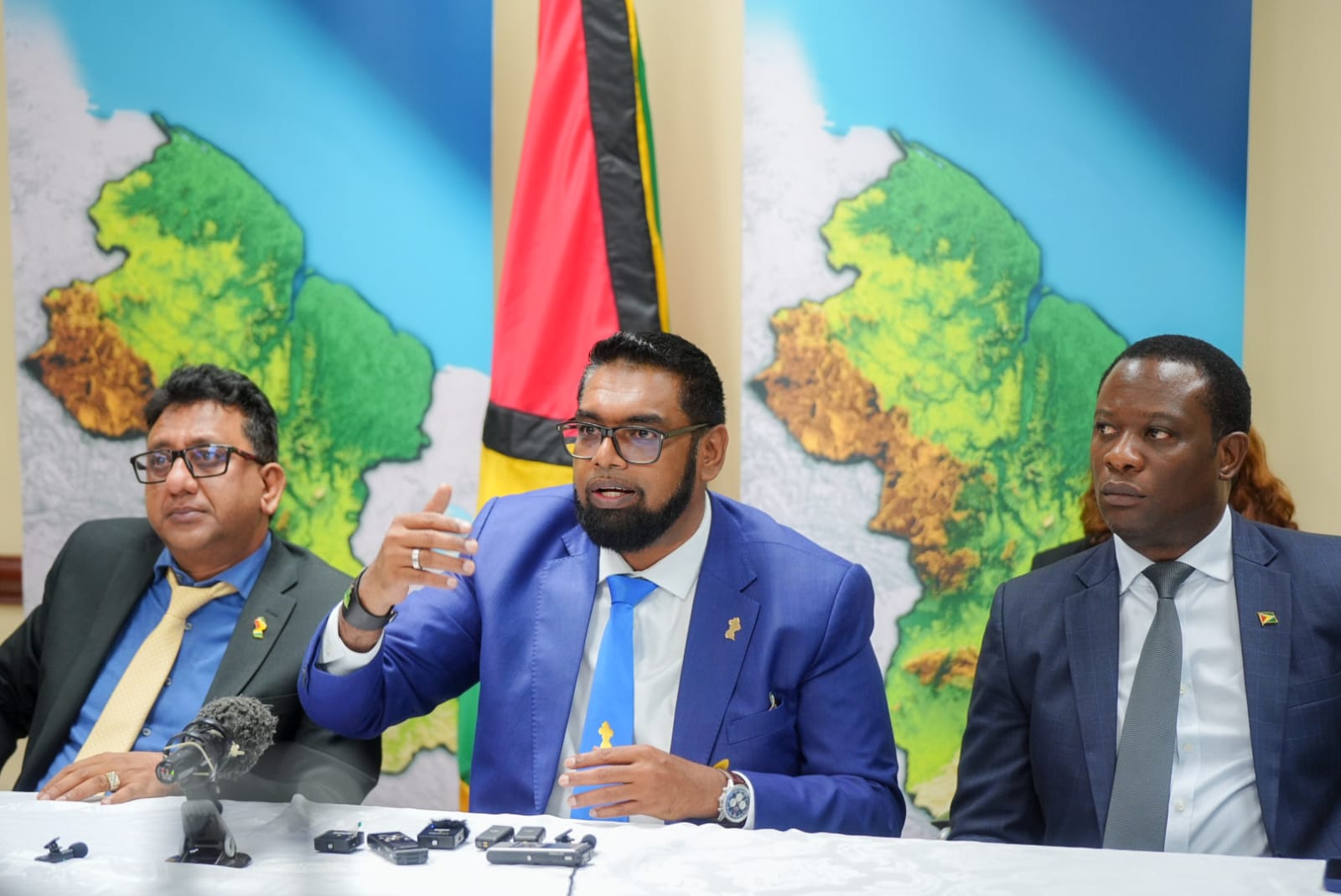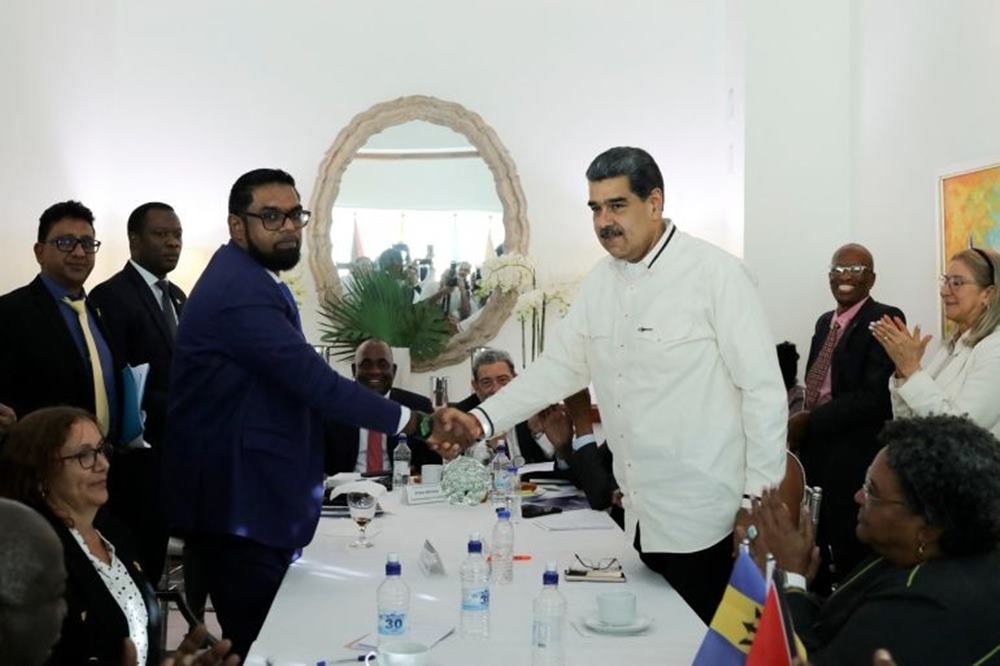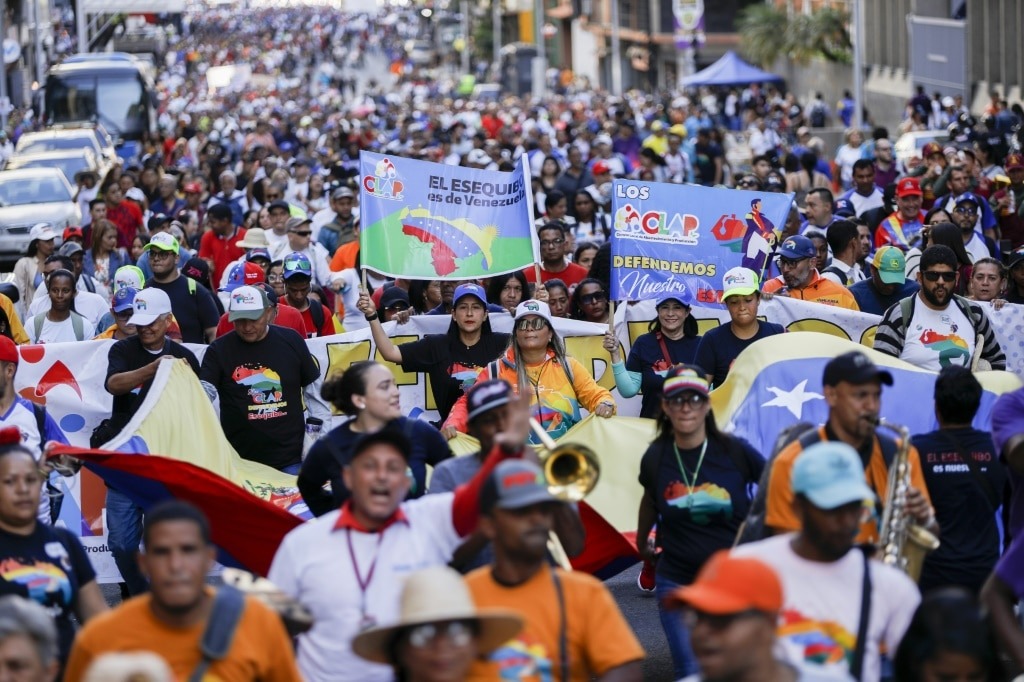President Dr. Irfaan Ali of Guyana recently met with David Rutley, the United Kingdom’s Under Secretary of State at the Foreign, Commonwealth, and Development Office (FCDO), to discuss the ongoing border dispute between Guyana and Venezuela. The meeting, held on Monday, was part of the UK’s efforts to support Guyana in maintaining its sovereignty over the mineral-rich Essequibo region, which Venezuela also claims.
The Essequibo region constitutes approximately two-thirds of Guyana’s territory and is home to a significant portion of its population, with 125,000 citizens residing there among Guyana’s total population of 800,000.
A government statement released after the talks highlighted that the discussions focused on strengthening the relationship between the UK and Guyana, particularly in the areas of sustainable economic development and security. Although the statement did not provide further details, it mentioned the presence of Robert Tinline, the FCDO’s Americas Director, and Jane Miller, the United Kingdom’s High Commissioner to Guyana, at the meeting. Additionally, Prime Minister retired Brigadier Mark Phillips, Senior Finance Minister Dr. Ashni Singh, and Minister of Foreign Affairs and International Cooperation Hugh Todd were also in attendance.
Last week, David Cameron, the British Foreign Secretary, expressed his support for Guyana’s sovereignty over the disputed region. In a message posted on social media platform X, formerly known as Twitter, Cameron welcomed Venezuela’s statement during the border talks held between Caracas and Georgetown in St Vincent. The statement from Venezuela indicated its commitment to refrain from using force, and Cameron viewed this as a positive step towards de-escalation.
The ongoing border dispute between Guyana and Venezuela has been a longstanding issue, and both countries have sought international support to resolve the matter peacefully. The involvement of the UK, as a historic ally of Guyana, demonstrates the international community’s interest in ensuring a fair and peaceful resolution to the dispute. President Ali’s meeting with UK Minister David Rutley signifies the continued diplomatic efforts to protect Guyana’s territorial integrity and promote stability in the region.
As discussions progress, it remains to be seen how these diplomatic efforts and international support will contribute to resolving the border dispute between Guyana and Venezuela.






